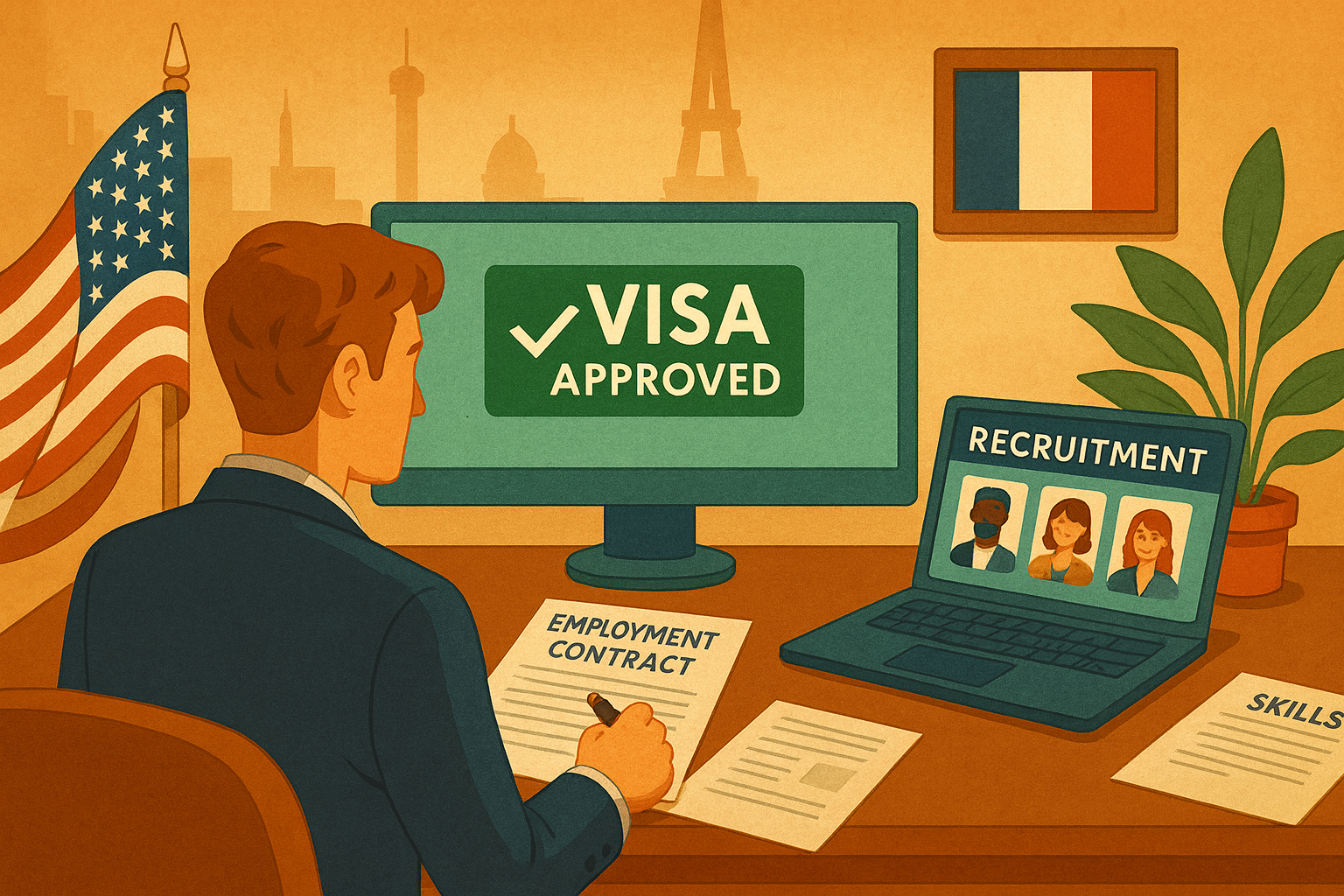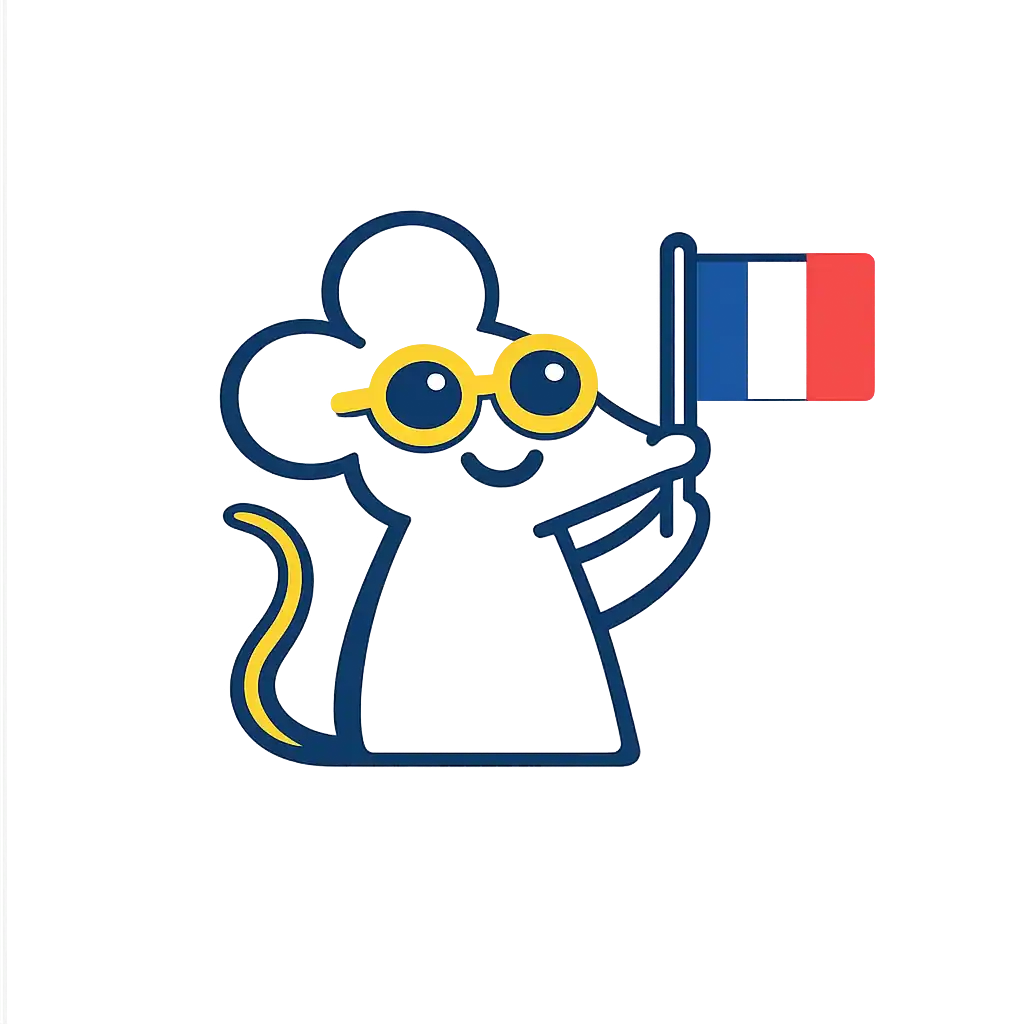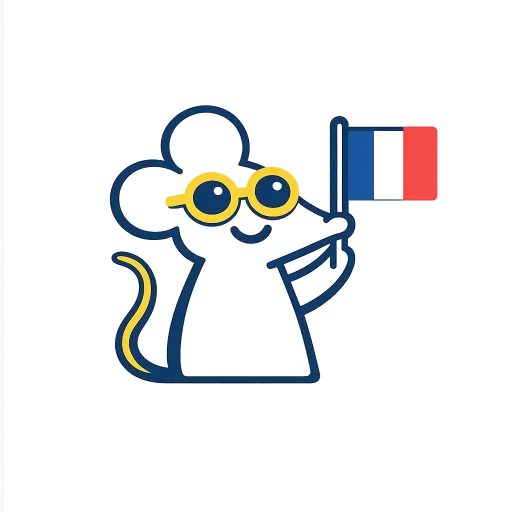Moving to France from USA guide — work visas, job search, and expat life (complete 2025 guide)
Moving to France from the United States requires navigating complex visa requirements, securing employment before arrival, understanding French labor law fundamentally different from American at-will employment, and integrating into bureaucratic systems that challenge even fluent French speakers. This comprehensive guide provides step-by-step process for obtaining work authorization, finding jobs matching your skills, understanding French employment contracts, and accessing expat communities essential for successful transition.

Why Americans move to France — and the reality check
The dream vs the reality
France attracts Americans seeking European lifestyle, universal healthcare, better work-life balance, rich culture, and escape from American political polarization. The romanticized vision—sipping wine at Parisian cafés, month-long August vacations, free healthcare—contains truth but oversimplifies the complex reality of French expatriate life.
Reality includes navigating labyrinthine bureaucracy requiring patience Americans accustomed to efficiency find maddening. Lower salaries than comparable US positions (often 30-50% less) offset by universal healthcare and social benefits. Cultural adjustment beyond language—understanding workplace hierarchy, social codes, and French directness contrasting with American politeness conventions. Professional challenges include credential recognition difficulties, networking in relationship-driven culture, and potential career trajectory limitations in non-international companies.
Successful American expats approach France with realistic expectations, viewing challenges as part of the experience rather than obstacles to the idealized vision. Those who thrive typically possess strong French language skills (at least B1-B2 level), cultural flexibility, financial cushion for transition period, and genuine interest in French culture beyond tourism stereotypes.
Who successfully relocates to France
Successful American expats typically fall into several categories:
- Highly skilled professionals: Tech workers, engineers, researchers, academics with credentials France needs
- Intra-company transfers: Employees of multinational corporations with French offices
- Entrepreneurs: Business founders creating jobs or bringing capital investment
- EU family members: Americans married to French/EU citizens (easiest path)
- Students transitioning to work: Master’s/PhD graduates from French universities staying post-degree
- Remote workers: Digital nomads with US income working remotely (complex visa situation)
- Retirees: Americans with sufficient passive income (different visa category)
The common thread: either specialized skills France actively recruits, existing connection to France (family, education), or financial independence enabling self-sufficient residence.
French work visa types for Americans
Passeport Talent (Talent Passport) — Most Common for Skilled Workers
Duration: Up to 4 years renewable
Eligibility: Highly skilled workers, researchers, investors, employees earning above threshold (approximately €54,000 annually as of 2025)
Path to permanent residence: Yes, after 5 years
Key advantages:
- Longer validity than standard work permits
- Includes family members (spouse can work without separate authorization)
- Renewable and pathway to permanent residency
- Faster processing than some other visa categories
Required documents:
- Valid job offer or employment contract from French company
- Proof of qualifications (diplomas, professional certifications)
- Proof of salary meeting minimum threshold
- Clean criminal record
- Health insurance coverage
- Proof of accommodation in France
Application process: Apply at French consulate in your US jurisdiction (assigned by state of residence). Processing time typically 2-4 months.
Who qualifies: Software engineers, data scientists, researchers, executives, highly compensated professionals in any field meeting salary threshold
Salarié (Employee Work Permit) — Standard Work Authorization
Duration: 1 year renewable
Eligibility: Job offer from French employer, no minimum salary threshold
Path to permanent residence: Yes, after 5 years
Key characteristics:
- Tied to specific employer (changing jobs requires new authorization)
- Employer must demonstrate position couldn’t be filled by EU worker (labor market test)
- Shorter initial validity than Talent Passport
- More bureaucratic requirements for employer
Employer responsibilities: French employer must initiate process, proving genuine need for foreign worker and inability to hire locally. This requirement makes many French employers reluctant to hire non-EU workers unless highly specialized skills justify bureaucratic burden.
Who uses this: Mid-level professionals not meeting Talent Passport salary threshold, specialized roles in smaller companies, positions where skills shortage documented
Entrepreneur / Profession Libérale — Self-Employed / Business Owner
Duration: 1 year renewable, can convert to Talent Passport
Eligibility: Viable business plan, sufficient capital, economic benefit to France
Path to permanent residence: Yes, after 5 years
Requirements:
- Detailed business plan demonstrating economic viability
- Proof of sufficient capital (minimum €15,000-30,000 depending on business type)
- Commitment to create jobs or bring innovation
- Relevant professional experience and qualifications
Startup visa variant: French Tech Visa available for innovative startup founders, with simplified process if accepted into French incubator or accelerator program
Who uses this: Entrepreneurs, freelancers, consultants, creative professionals planning to work independently or start businesses in France
ICT (Intra-Company Transfer) — Corporate Transfers
Duration: Up to 3 years
Eligibility: Employee of multinational company transferring to French branch/subsidiary
Path to permanent residence: More complicated, depends on converting to different visa type
Advantages:
- Company handles most bureaucracy
- Faster processing through established corporate channels
- Salary often remains at US level (or negotiated)
- Company provides relocation support
Disadvantages:
- Tied to transferring company
- Leaving company means losing work authorization
- Converting to independent work authorization can be challenging
Who uses this: Employees of US companies with French operations (tech companies, consulting firms, financial services, manufacturing multinationals)
Researcher / Scientist Visa — Academic and R&D Positions
Duration: Up to 4 years
Eligibility: Position at French research institution, university, or R&D department
Path to permanent residence: Yes, after 5 years
Special features:
- Simplified procedures for recognized research institutions
- Family members included
- Can supplement with teaching or consulting income
- Pathway to Talent Passport if meeting salary requirements
Who qualifies: PhD holders, postdoctoral researchers, scientists, academics with positions at French universities, CNRS, INSERM, or private R&D labs
⚠️ No “digital nomad visa” currently: France doesn’t offer specific remote work visa for Americans working for US companies while living in France. Technically, this requires entrepreneur visa with French business registration, even if clients are American. Many digital nomads enter on tourist visas (90 days) and leave periodically, but this violates visa terms if “working” and creates tax complications. Consult immigration attorney for legal remote work arrangements.
Step-by-step visa application process
Step 1: Secure job offer or establish business basis (2-6 months)
Before applying for work visa, you need either confirmed job offer from French employer or approved business plan. This represents the most challenging step—finding French employer willing to hire American despite visa complications, or developing viable business justifying entrepreneurship visa.
Step 2: Gather required documents (2-4 weeks)
Standard documents for most work visas:
- Valid passport (minimum 6 months validity beyond planned stay)
- Completed long-stay visa application form
- Recent passport photos (specific French requirements)
- Employment contract or detailed job offer letter
- University diplomas and professional certifications (official translations if not in French/English)
- Resume/CV
- Proof of accommodation in France (lease, hotel reservation, host attestation)
- Proof of financial resources
- FBI background check (apostilled)
- Birth certificate (apostilled with certified French translation)
- Health insurance valid in France
- Visa application fee payment ($99-160 depending on visa type)
Apostille requirement: US documents must be apostilled (authentication for international use) by state Secretary of State or US Department of State depending on document type.
Step 3: Schedule appointment at French consulate (1-4 weeks wait)
US divided into consular jurisdictions—you must apply at consulate serving your state of residence:
- Washington DC: DC, MD, VA, WV, NC, SC, GA, AL, MS, LA, AR, TN, KY
- New York: NY, NJ, PA, CT, Bermuda
- Boston: MA, ME, NH, VT, RI
- Atlanta: Covers Southeast (overlaps with DC for some states)
- Chicago: IL, WI, IN, MI, OH, MN, ND, SD, NE, KS, MO, IA
- Houston: TX, OK, NM
- Los Angeles: Southern CA, AZ, NV, HI
- San Francisco: Northern CA, OR, WA, ID, MT, WY, UT, CO, AK
- Miami: FL
Schedule appointment through consulate website. Wait times vary by location and season (summer months busier).
Step 4: Attend visa interview (15-30 minutes)
Bring all original documents plus photocopies. Consular officer reviews application, asks questions about employment, French language skills, integration plans. Be prepared to explain why French employer needs your specific skills.
Step 5: Wait for processing (4-12 weeks typical)
Consulate sends application to French immigration authorities for final approval. Processing times vary significantly:
- Talent Passport: 2-8 weeks typically
- Standard work permit: 8-12 weeks
- Entrepreneur: 8-16 weeks (more scrutiny of business plans)
During this period, passport held by consulate (request temporary passport if need to travel).
Step 6: Receive visa and validate in France (within 3 months of arrival)
Upon approval, visa sticker placed in passport allowing entry to France. After arrival, you have three months to validate visa with OFII (French Immigration Office) by:
- Scheduling medical examination
- Providing proof of address
- Paying OFII tax (€200-300 depending on visa type)
- Receiving validated residence permit (carte de séjour)
This validation crucial—unstamped visa becomes invalid even if initially approved.
💡 Timeline reality: From securing job offer to validated residence permit: minimum 3-6 months, often 6-9 months with delays. Plan accordingly—don’t give notice at US job until visa approved, maintain US health insurance until French coverage active, budget for extended transition period.
Finding employment in France from the USA
Top job search platforms for France
General job boards:
- LinkedIn — Most important platform for international job search. French recruiters actively use LinkedIn. Set location to target French cities, use French keywords, join French professional groups.
- Welcome to the Jungle — Modern French job platform popular with startups and tech companies. English version available, focuses on company culture and values.
- Indeed France — French version aggregates listings from multiple sources. Use French keywords for better results.
- Monster France — Established job board with international companies.
- APEC — Focused on cadres (managers/professionals). Primarily French-language, used by established companies.
Tech-specific platforms:
- Talent.io — Tech jobs across Europe including France. Companies contact you after profile creation.
- Dice Europe — Tech jobs including French positions.
- La French Tech — French startup ecosystem; lists jobs at French Tech companies.
- Stack Overflow Jobs — Developer positions including France.
International companies with French offices:
Target American or international companies with French operations—they understand visa process and often have English-speaking environments easing transition. Major employers include:
- Tech: Google (Paris office), Microsoft, Amazon, Meta, Apple, Salesforce, Oracle
- Consulting: McKinsey, BCG, Bain, Accenture, Deloitte, PwC, EY, KPMG
- Finance: JPMorgan, Goldman Sachs, Morgan Stanley, Citigroup, BNP Paribas (international divisions)
- Pharma/Biotech: Pfizer, Johnson & Johnson, Merck, AbbVie
- Engineering: Boeing, GE, Honeywell
Recruitment agencies specializing in international placements:
- Michael Page France — International recruitment, English-speaking consultants
- Hays France — Multinational recruiter with French offices
- Robert Walters France — Specializes in bilingual professional placements
In-demand professions and sectors
France maintains shortage occupation lists where foreign workers face less restrictive requirements. Current high-demand sectors include:
Technology and IT (highest demand):
- Software developers (all languages, especially Python, Java, JavaScript)
- Data scientists and AI/ML engineers
- Cybersecurity specialists
- DevOps engineers
- Cloud architects
- Mobile developers (iOS/Android)
- Full-stack developers
Engineering:
- Aerospace engineers (Airbus, Dassault, Safran major employers)
- Automotive engineers (especially electric vehicles, autonomous systems)
- Civil engineers (infrastructure projects)
- Mechanical engineers
- Electrical engineers
Healthcare:
- Doctors and specialists (must pass French medical equivalency exams)
- Nurses (with credential recognition)
- Medical researchers
- Biotech scientists
Finance and Business:
- Financial analysts
- Investment bankers
- Quantitative analysts
- Accountants (with French accounting knowledge)
- Business development managers
Academia and Research:
- University professors and lecturers
- Postdoctoral researchers (all STEM fields)
- Research scientists (CNRS, INSERM, CEA)
Other in-demand roles:
- English teachers (especially at business schools, universities)
- Marketing specialists (digital marketing, SEO)
- Product managers
- UX/UI designers
- Project managers (especially tech projects)
The French job application process
CV format (different from US resume):
- Include photo (standard in France, unlike US where prohibited)
- Date of birth and nationality (normal in France)
- Longer format acceptable (2-3 pages common for experienced professionals)
- Detailed education section including secondary school
- Hobbies/interests section (shows personality)
- Chronological rather than functional format preferred
Lettre de motivation (cover letter):
- Highly formal, structured format expected
- Must be in French for most positions (even if job posting in English)
- Specific formulas for opening and closing (avoid “Dear Sir/Madam” literally translated)
- Express motivation for company specifically, not generic interest
Interview process:
- Multiple rounds typical (often 3-5 interviews)
- Formal dress code (more conservative than US tech interviews)
- Emphasis on academic credentials and theory, less on “tell me about a time when…”
- Questions about French language skills, visa status, integration plans
- Expect to discuss philosophy, culture, show cultural awareness beyond just business
⚠️ Visa sponsorship challenge: Many French job listings state “droit de travailler en France requis” (right to work in France required), excluding non-EU applicants. Don’t let this discourage you—if you have highly sought skills, contact employer anyway explaining your qualifications and willingness to handle visa process. Some employers unaware that Talent Passport simplifies hiring highly skilled non-EU workers.
Understanding French employment contracts
CDI vs CDD — permanent vs fixed-term contracts
CDI (Contrat à Durée Indéterminée)
Translation: Permanent contract / open-ended contract
Characteristics:
- No end date (permanent until resignation or termination)
- Strong legal protection against firing (unlike US at-will employment)
- Full benefits (health, unemployment, pension)
- 3-month trial period typical (renewable once)
- Severance pay if terminated (except gross misconduct)
The standard: CDI is default contract type and what you should aim for. Provides stability and best visa/residence permit prospects.
CDD (Contrat à Durée Déterminée)
Translation: Fixed-term contract / temporary contract
Characteristics:
- Specific end date (maximum 18 months, renewable once)
- Used for temporary needs, seasonal work, project-based roles
- Same benefits as CDI during contract period
- 10% “precarity bonus” paid at contract end (compensation for uncertainty)
- Automatically converts to CDI if continued beyond maximum duration
Limitations: Less ideal for visa purposes—renewals require employer justification. Some visa types require CDI.
Key employment contract terms and protections
Salaire brut vs salaire net (gross vs net salary):
French salaries quoted as gross (brut) before deductions. Net (what you actually receive) approximately 75-80% of gross due to social charges (health insurance, retirement, unemployment insurance) deducted automatically. If offered €50,000 brut annually, expect approximately €37,500-40,000 net.
Working hours and vacation:
- Legal maximum: 35 hours/week (though many professionals work more)
- Minimum vacation: 5 weeks (25 days) paid leave annually (conges payés)
- 11 public holidays (jours fériés) in addition to vacation
- RTT (Réduction du Temps de Travail): extra days off if working over 35 hours
- Overtime regulated and compensated (unlike US salaried exempt employees)
Health insurance and benefits:
- Universal healthcare (Sécurité sociale) covers 70-100% of medical costs
- Employer must provide complementary health insurance (mutuelle) covering remaining costs
- Unemployment insurance (allocations chômage) if laid off
- Retirement pension contributions automatic
- Paid sick leave (with doctor’s note)
Termination protections:
France heavily regulates employment termination. Employers cannot fire employees “at will” like in most US states. Termination requires:
- Legitimate cause (performance issues documented, economic reasons, gross misconduct)
- Formal procedure (warning letters, improvement periods)
- Severance pay except for gross misconduct
- Advance notice period (préavis) typically 1-3 months
This protection explains French employer reluctance hiring foreign workers—if hire doesn’t work out, termination is lengthy and expensive unlike US where either party can end employment immediately.
💡 Salary negotiation tip: French salaries lower than equivalent US positions (often 30-50% less for same role) but remember: no health insurance premiums ($500-1500/month savings), 5+ weeks vacation (vs US 2-3 weeks typical), job security, better work-life balance. Calculate total compensation including benefits, not just salary number. Also remember cost of living varies—Paris expensive, other French cities much more affordable than major US cities.
Practical aspects of relocating
Finding accommodation
Rental platforms:
- LeBonCoin — French Craigslist, largest rental listing site (French language)
- SeLoger — Major rental platform
- PAP (Particulier à Particulier) — Direct landlord-tenant listings avoiding agency fees
- Lodgis — English-language service for expats (higher fees but easier for non-French speakers)
The French rental challenge:
Renting in France, especially Paris, involves significant bureaucratic hurdles Americans find shocking:
- Dossier requirement: Must provide extensive documentation (tax returns, pay stubs, employer letter, guarantor information, ID)
- Income requirements: Must earn 3x monthly rent (challenging initially without French pay stubs)
- Guarantor (garant): Often requires French guarantor earning significant income or use of guarantee services like Visale
- Security deposit: Typically 1 month rent (refundable)
- Competition: Good apartments receive dozens of applications within hours in Paris
Initial housing strategy: Many expats start with temporary furnished rentals (Airbnb long-term, corporate housing) while establishing French employment and banking, then transition to standard leases once documentation complete.
Banking and finances
Opening French bank account:
Essential within weeks of arrival—needed for salary deposits, rent payments, utilities. Requirements typically include:
- Valid residence permit
- Proof of address (lease, utility bill)
- Passport
- Employment contract or proof of income
Expat-friendly banks:
- BNP Paribas (international divisions, English-speaking staff in major cities)
- Crédit Agricole (widespread network)
- Société Générale
- N26 or Revolut (online banks, easier account opening but limited services)
US tax obligations:
Critical reminder: US citizens must file US taxes regardless of where they live. France and US have tax treaty preventing double taxation on same income, but filing requirements remain. Consult international tax accountant familiar with US-France treaty. FBAR (Foreign Bank Account Report) required if foreign accounts exceed $10,000 total at any point during year.
Healthcare system
Enrollment process:
As legal resident with employment, you’re automatically enrolled in French healthcare (Sécurité sociale). After 3 months employment, you receive Carte Vitale (health insurance card) enabling:
- Doctor visits reimbursed 70% (mutuelle covers remaining 30%)
- Hospitalization mostly covered
- Prescription medications partially reimbursed
- Dental and vision coverage (varies by mutuelle)
How it works:
Unlike US insurance networks, you choose any doctor accepting Carte Vitale. Pay upfront, then automatic reimbursement to your bank account within days. No prior authorization for most care. Emergency care free at point of service.
Language requirements and integration
While many international companies operate in English, French language skills critically important for:
- Daily life (government offices, healthcare, banking rarely have English options)
- Social integration (making French friends difficult without French)
- Career advancement (management positions require French)
- Residence permit renewals (increasing language requirements)
- Eventual citizenship (B1 level French required)
Minimum recommended level: B1-B2 before arrival makes transition dramatically easier. Can survive with basic French but expect significant frustration and isolation. Invest in French lessons before and during relocation.
Essential expat communities and resources
Reddit communities for American expats in France
r/IWantOut — reddit.com/r/IWantOut
General emigration subreddit with frequent France posts. Search “France” for extensive archived discussions about visa types, job search, challenges. Active community providing candid advice about feasibility and reality checks on romanticized plans.
r/expats — reddit.com/r/expats
Broader expat community discussing relocation to all countries including many France-specific threads. Good for comparing French expatriate experience to other destinations.
r/france — reddit.com/r/france
Main French subreddit (posts primarily in French). Lurking provides cultural insights and current events. Post in French for genuine French perspectives on living in France, though responses can be brutally honest about American expat naivety.
r/AskFrance — reddit.com/r/AskFrance
Questions about France and French culture. More welcoming to foreigners than r/france, often has expats answering alongside French locals. Good for practical questions about bureaucracy, customs, daily life.
r/paris — reddit.com/r/paris
Specific to Paris expat life. Very active with frequent housing, job, and practical living questions. Can be cynical about expats but provides realistic perspective on Paris challenges.
r/SocialFrance — reddit.com/r/SocialFrance
Meeting people in France, making friends. Important for combating expat isolation. Regular meetups organized in major cities.
Other essential online resources
Facebook groups:
- “Americans in France” (private group, must request membership)
- “Expats in Paris” (large active community)
- “Paris Apartment Hunting” (housing-specific)
- City-specific groups (Lyon Expats, Toulouse International Community, etc.)
Expatriate websites and blogs:
- Expatica France — Comprehensive expat guides
- InterNations France — Global expat network with France chapters, events
- The Local France — English news about France, expat-focused articles
- The Connexion — English newspaper for France residents, practical advice
Official government resources:
- France-Visas — Official visa information
- Service-Public.fr — French government services (in French)
- Welcome to France — Government site for international talent
Realistic timeline and costs
Complete relocation timeline
Months 1-6: Preparation and job search
- Improve French to minimum B1 level
- Research target cities, cost of living, industries
- Begin LinkedIn networking with French professionals
- Apply for positions, contact recruiters
- Budget: $1,000-3,000 (French courses, application translations, trips to France for interviews if invited)
Months 7-9: Securing employment and visa application
- Receive and negotiate job offer
- Gather visa documents, obtain apostilles
- Schedule and attend consulate appointment
- Wait for visa processing
- Budget: $2,000-4,000 (document fees, apostilles, translations, consulate fees, medical exam)
Months 10-11: Approved visa and relocation
- Receive visa approval
- Book flight, ship belongings or sell/store
- Arrange temporary housing for first weeks
- Arrive in France, complete OFII validation
- Budget: $5,000-15,000 (flights, shipping, temporary housing, first month expenses, security deposits)
Months 12+: Integration and establishment
- Begin employment
- Find permanent housing
- Open bank account
- Enroll in healthcare
- Build social network
- Budget: 3-6 months living expenses saved (cushion for unexpected costs, initial low/no salary period)
Total estimated costs
Minimum budget (frugal relocation): $10,000-15,000
- Assumes minimal belongings, budget flight, shared temporary housing, securing apartment quickly
Realistic budget (comfortable relocation): $20,000-30,000
- Shipping household goods, private temporary housing, several apartment deposits/first months, cushion for bureaucratic delays
Premium budget (family relocation): $40,000-60,000+
- Moving family, children’s schools, larger housing, corporate relocation package unavailable
Study glossary — work and immigration vocabulary
| FR | IPA | EN |
|---|---|---|
| Un visa de travail | /œ̃ viza də tʁavaj/ | A work visa |
| Un permis de séjour / Une carte de séjour | /œ̃ pɛʁmi də seʒuʁ / yn kaʁt də seʒuʁ/ | A residence permit |
| Le Passeport Talent | /lə paspɔʁ talɑ̃/ | Talent Passport (visa type) |
| Un contrat de travail | /œ̃ kɔ̃tʁa də tʁavaj/ | Employment contract |
| CDI (Contrat à Durée Indéterminée) | /se de i/ | Permanent contract |
| CDD (Contrat à Durée Déterminée) | /se de de/ | Fixed-term contract |
| Le salaire brut / net | /lə salɛʁ bʁyt / nɛt/ | Gross / net salary |
| Les charges sociales | /le ʃaʁʒ sɔsjal/ | Social security contributions |
| Les congés payés | /le kɔ̃ʒe peje/ | Paid vacation |
| Un CV / Un curriculum vitae | /œ̃ se ve / œ̃ kyʁikylɔm vite/ | Resume / CV |
| Une lettre de motivation | /yn lɛtʁ də mɔtivasjɔ̃/ | Cover letter |
| Un entretien d’embauche | /œ̃n‿ɑ̃tʁətjɛ̃ dɑ̃boʃ/ | Job interview |
| La Sécurité sociale | /la sekyʁite sɔsjal/ | Social security (healthcare) |
| Une mutuelle | /yn mytyɛl/ | Supplementary health insurance |
| L’OFII | /ɔfi/ | French Immigration Office |
| Un garant | /œ̃ ɡaʁɑ̃/ | Guarantor (for housing) |
| Un dossier | /œ̃ dɔsje/ | Application file / documentation |
| Le droit de travailler | /lə dʁwa də tʁavaje/ | Right to work / work authorization |




